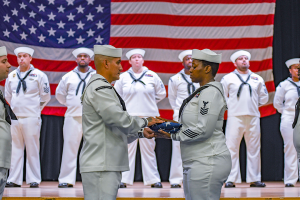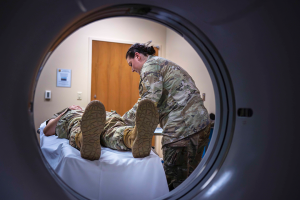
This Is A Privilege
Being a credentialed provider in the U.S. Navy has given me the privilege to care for and treat my closest friends and complete strangers. It is a privilege to serve in a job that allows me to lead through compassion. In my experience as a provider I have come to realize, in a very short time, that the stress and demand of serving in the military takes a toll on even the most resilient.
Pain We All Experience
For some, this stress manifests in different ways, for one person it may be psychological, for another it may manifest as physical ailments. The commonality is that most individuals are unaware of how they may be compensated through the VA once their time in service is complete. Far too often, service members put their job, which in their mind is their peers, ahead of their own physical needs. Instead of seeking treatment for an injured knee or headaches, they carry on. They suffer in silence in order to avoid being perceived as weak or someone that may not be relied upon. These men and women push to the very end of their service. Most wait until they are 6 months from separating from service to attend a transition assistance course. It is after attending a transition course that a service member becomes aware of the exhausting process of creating and filing a VA claim. In many instances, first term service members, when facing the requirements of submitting a claim, resort to not filing anything (roughly 76% choose not to file). All too often, you and men and women like you, have served in some of the most demanding occupations and often put operational readiness ahead of their physical needs. These individuals, in many cases, have debilitating injuries that have gone completely undocumented. The lack of documentation serves as a tremendous barrier in submitting a claim and receiving benefits in a timely manner.
Not Enough Time
I have seized every opportunity to educate and enable my patients to submit accurate and substantive claims prior to separation from service. Patient encounters such as that are often 40 minutes or longer. It is outside of my scope, as a provider, to educate and guide members in that capacity. When faced with patients who are oftentimes my closest friends or men I work very closely with, who have little to no insight as to what awaits them, I feel obligated to seize that opportunity and guide them through what they should expect.
Who’s Job Is It?
The military does not currently possess the means to educate members appropriately prior to separation and there is no formal process in which service members can seek out this information. Instead the presumption is that small unit leaders or military clinicians will educate members on the claims process.
The Truth Hurts, Literally.
The truth is that small unit leaders are not going to spend time with someone who is getting out. In an ideal world that team leader or platoon sergeant would sit down with subordinate and have an informative conversation about this process. The reality is, the individual who is transitioning from service is not the priority. There are exceptional small unit leaders out there who do take the time and do have legitimate interest in seeing their people succeed however, this is the exception and not the rule.
As for military clinicians, it is no different. Speaking from personal experience, seeing patients is about 25% of the job. I have spoken with multiple Doctors in the military and the consensus is this; it is not the job of the unit doctor/IDC/PA to educate members on VA benefits nor is it their responsibility to document “aches and pains”. The clinicians at operational units have one job, to keep people in the fight. This is not the clinicians choice but rather the reality of being a part of a war fighting organization.
Can We Improve The Culture?
I do believe military providers and small unit leaders can improve this process. Military providers don’t necessarily have to overextend themselves but they could say “hey, is there anything else bothering you today that you would like me to document?”. That single piece of documentation can be a big difference in your VA claim. I speak from personal experience, this is not that time consuming. As for small unit leaders, or shop supervisors, perhaps not giving their people a hard time when they want to go to the BAS/clinic. I had a Platoon Commander once tell his platoon that if you went to sickcall you will get kicked out of training. That’s one example of hundreds that I have. I know for a fact that I am not the only one.
Military medicine and small unit leaders are not equipped with the time or the knowledge to educate service members on how to file a VA claim. What’s more is they do not possess the level of familiarity with the VA literature that can help members maximize their VA disability rating.
Our Commitment Defines Us
Our Active Duty and Veteran staff at Zero Nexxus are well versed in documentation and VA literature. We are not lawyers or Doctors. We are active duty and we are veterans. We are not a VSO nor are we accredited by the VA. We have taken the time and spent our own money to create a platform that increases our sphere of influence and that will help you submit an accurate and substantive claim prior to separating from service. Schedule a consultation now.


